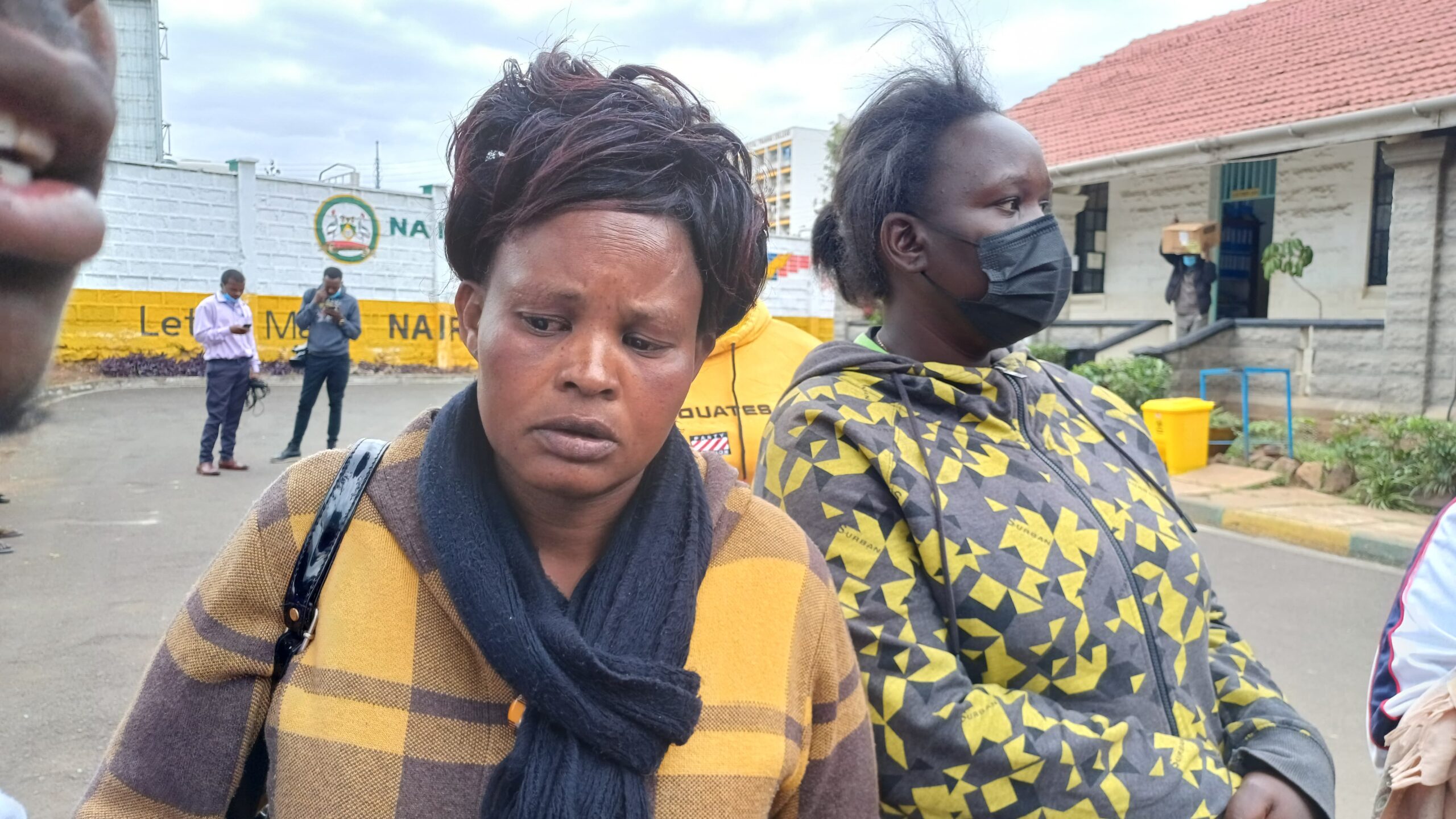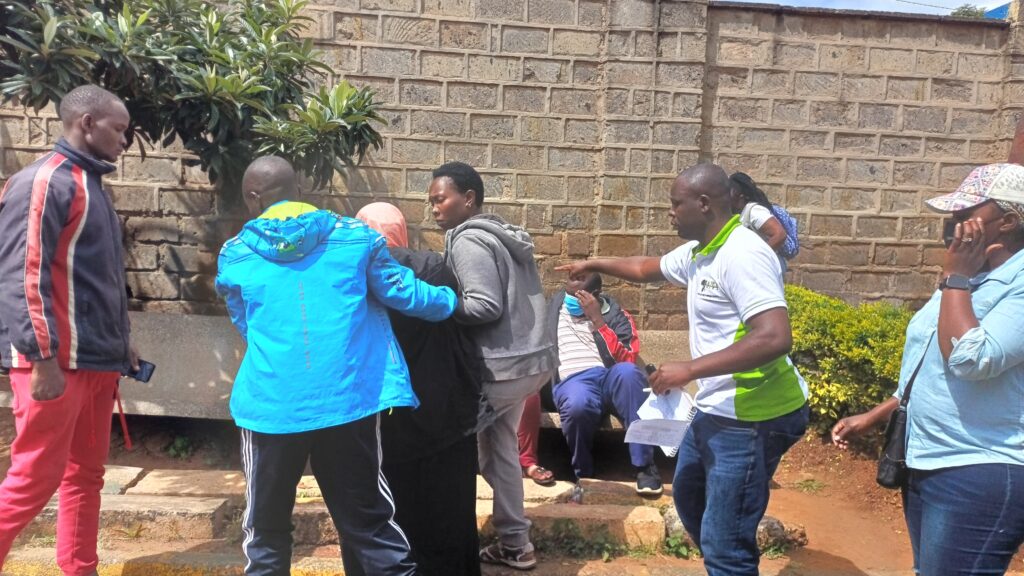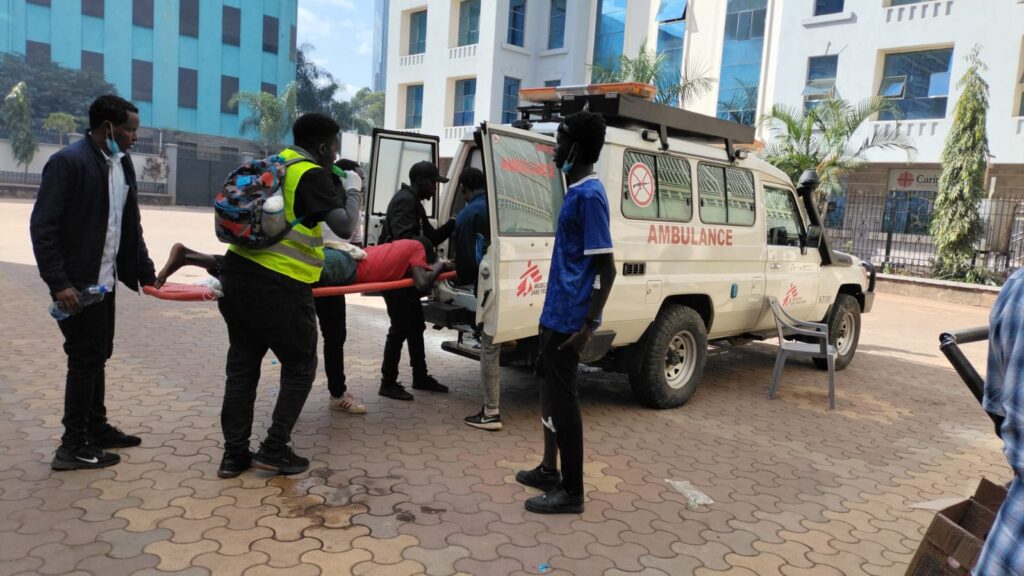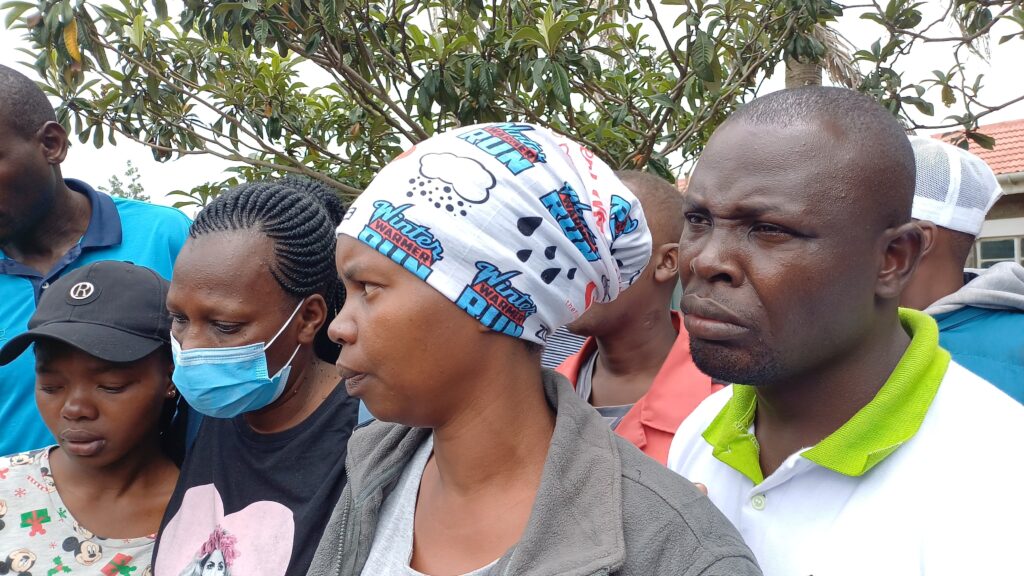
“I Don’t Want to Speak to Ruto’s Government. God Will Avenge Me,” Says Mother of Killed Protestor in Anti-Finance Bill Protests » Capital News
NAIROBI, Kenya, June 26 – Tears, anger, and a somber mood filled the air in several city morgues, where the bodies of protestors shot dead by police during Tuesday’s deadly anti-Finance Bill protests in Nairobi lay.
Grieving families recounted the events that led to the deaths of their children, most of whom were under 30 years old.
More than 20 people, mainly youth, were shot dead by police during the protests against the Finance Bill 2024, which President William Ruto declined to assent to the Bill, heeding the calls by the youth.
Capital News spoke with some of these families at Nairobi’s City Mortuary, where the bodies of six victims lay.

Carolyn Nduku, the mother of Erickson Kyalo Musyoka, 25, shared the last moments she spent with her son. Nduku last saw her son around 8 a.m. when she visited him at home while preparing to go to work. They watched the protests unfold on TV together.
“In our conversation, my son assured me that he would not take part in the demonstrations but would go straight to work,” she said. Musyoka, who operated a butchery, mentioned he was going to get some meat on Valley Road before they parted ways around 10:30 a.m.
Nduku proceeded to her home in Utawala, where she spent time till 1:00 pm before heading to Machakos for an errand. While on her way, she tried calling her son’s phone, but a stranger answered, raising her fears.

“I asked him where he had gotten my son’s phone and inquired about his whereabouts. He informed me he was not in a position to explain the situation before ending the call,” Nduku narrated.
Later, she received a call informing her that her son had “gone to heaven.” Nduku knew something was wrong and called her husband to inform him. “When I arrived in Machakos, the individual called again and told me that my son had been shot. I asked him to describe the clothes my son was wearing, and that is when I knew my son was indeed gone,” she said. Musyoka was shot behind Parliament, sustaining chest injuries.
Nduku expressed her anger towards the government and said she did not want anything to do with President Ruto’s administration. “I don’t want anything to do with this government for the pain they have inflicted on me. God will avenge my son,” she declared. She also had a message for the officer who shot her son. “I would want to get answers from him on why he shot my son. Why did he shoot him when these young people were not doing anything wrong?”
Edith Wanjiku, the mother of 19-year-old Ibrahim Kamau, who was also shot dead by police, shared her tragic story. Wanjiku disclosed that she last saw her son alive on Tuesday morning. His son’s aunt tried calling him in the evening to warn him about the violent protests, but she got no response.

Wanjiku then called her son’s friend, who informed her that he had Kamau’s phone but did not know his whereabouts. “He informed me that he was in possession of my son’s phone but was unaware of his whereabouts telling me that they parted ways around 2 pm where he was at the Supreme Court area,” she said.
Wanjiku began her search for her son at Holy Family Basilica, where injured protestors were being treated. She was referred to Kenyatta National Hospital, then Mbagathi, and finally City Mortuary, where she found her son among the deceased.

Wanjiku condemned the government’s actions and demanded accountability. “What we witnessed yesterday was horrifying and sad for our country. My son chose to go to the protests because of the Bill, and I allowed him. Among all those he left with; he is the only one who ended up dead.” She questioned why her son was killed while protesting peacefully. “I would ask my son’s killer why he killed my son, who was not a thief and was protesting as allowed in the constitution.” Her son was operating his motorcycle business in Eastleigh’s Biafra area.
Nationwide demonstrations, primarily organized by Kenya’s youthful population, the Gen-Z, have rocked several parts of the country since last week. The protests culminated on Tuesday when demonstrators stormed Parliament after lawmakers passed the controversial bill. The violent scenes resulted in several deaths and injuries, prompting widespread condemnation and calls for restraint from both local and international leaders.
By Wednesday, businesses in Nairobi and other parts of the country were counting their losses, with many shops looted or burnt. In Nairobi, City Hall and the Supreme Court were set on fire before the blazes were extinguished, but many businesses in the Central Business District were not as fortunate, as mobs descended on them.
Since Tuesday, there has been mounting pressure from leaders, including former President Uhuru Kenyatta and Azimio coalition leader Raila Odinga, urging President Ruto not to sign the bill and to listen to the people instead. On Wednesday, President Ruto heeded these calls and announced that he was sending the bill back to Parliament.

UN Secretary-General Antonio Guterres also expressed concerns about the violence in Kenya and urged restraint. “He is saddened by the reports of deaths and injuries, including those of journalists and medical personnel,” a statement from his office said.
Guterres emphasized the importance of upholding the right to peaceful demonstrations. “The Secretary-General urges the Kenyan authorities to exercise restraint and calls for all demonstrations to remain peaceful,” the statement added.
The unfolding events highlight the significant tension and unrest in Kenya as citizens voice their discontent with the controversial Finance Bill. The call for dialogue and peaceful resolution from international figures underscores the need for a measured approach to address the grievances and restore calm in the country.
